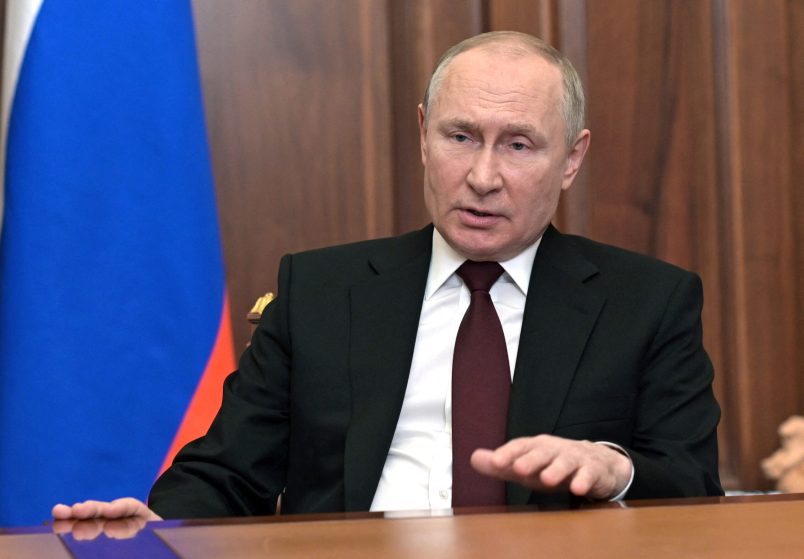I made several mistakes in judging the conflict with Russia over Ukraine. In so far as others may have made similar errors, it may be worth saying what these are, and what I think is still valid in my earlier criticisms of the U.S. policy. These observations bear on what is valid and not in the foreign policy outlook called realism.
First, I misjudged Vladimir Putin’s intentions. I thought he was merely threatening invasion and would settle for some version of a neutral Ukraine. After he invaded Eastern Ukraine, I thought he would settle for a separate Donbas the way he had settled for South Ossetia in Georgia in 2008. I didn’t expect he would invade and try to topple the government.
This mistake was partly the product of wishful thinking, but it also flowed from a certain version of realism that attributes reasonable calculations to both sides in a conflict. I avoid saying “rational” because I don’t want to say that Putin is mad, crazy, nuts anymore than George W. Bush was nuts when he made a similar, huge mistake and invaded Iraq in 2003. Putin may turn out to be nutty, but even perfectly sane rulers can profoundly miscalculate.
Second, I misjudged American intelligence services and President Joe Biden. I thought U.S. intelligence was once again going to be proven incorrect as it had been in Iraq in the early 2000s or in the Soviet Union in the 1980s. I thought Biden would mess up as he had in the American withdrawal from Afghanistan. But both our intelligence services and Biden have performed admirably to date.
Biden’s one enduring weakness, which was fully on display in his addresses to the nation, has been his inability to sell the country on the need to back the Ukrainians vigorously, even at the risk of still higher gas prices. He still talks as if he were the chairman of the Senate Foreign Relations Committee addressing other politicians. Maybe, he’ll redeem himself in his State of the Union tomorrow. If not, given the public’s concern with inflation, and if polls are to be believed, relative lack of interest outside the metro areas in the Ukrainian conflict, Biden’s commitment to repelling Putin could help cost The Democrats a defeat in 2022 and even 2024.
But if so, it’s worth the price. If the U.S., the European Union, and various allies can force Putin to give up Ukraine, they will have reaffirmed the lesson lost in the American invasion of Iraq — that big nations can’t impose their will on smaller, weaker ones. That may resonate in China, which has its eye on an island off its coast.
Third, of course, I misjudged the ability of Ukraine’s army and people to hold off the Russians, but I don’t think that mistake had anything to do with my underlying outlook. Almost everyone outside Ukraine missed that one.
Where I think I was still right is in my criticism of NATO expansion and America’s inability to put itself in other country’s shoes. Putin may have invaded Ukraine this year regardless of what the U.S. and Europe offered, but the conditions that led up to this conflict, and would have led to continued strife, was the expansion of a military alliance up to Russia’s border.
Americans, whose country was borne out of an evangelical conviction — repeatedly restated by American presidents — that America was a model for the world to follow, a “new Israel” and a “city on the hill” have repeatedly proved unable to understand, and take seriously, other country’s national aspirations. Russia has a similar past. Putin has evoked not merely the Soviet Union and the Czarist empire, but Russian orthodoxy, which was born in Ukraine, in explaining his own ambitions. Putin may have adopted an exaggerated version of these aspirations, but they are part of the Russian psyche in the same way as the vision of the city on a hill is part of America’s underlying outlook.
I don’t know how all this will end up. At present, the polar alternatives are a renewal of the Cold War, with Moscow this time the junior partner of Beijing, or the fall of Putin and the re-emergence of a Russia turned westward. If the latter, the U.S. will have a chance to undo the errors that it made in the 1990s when the Soviet Union collapsed.






